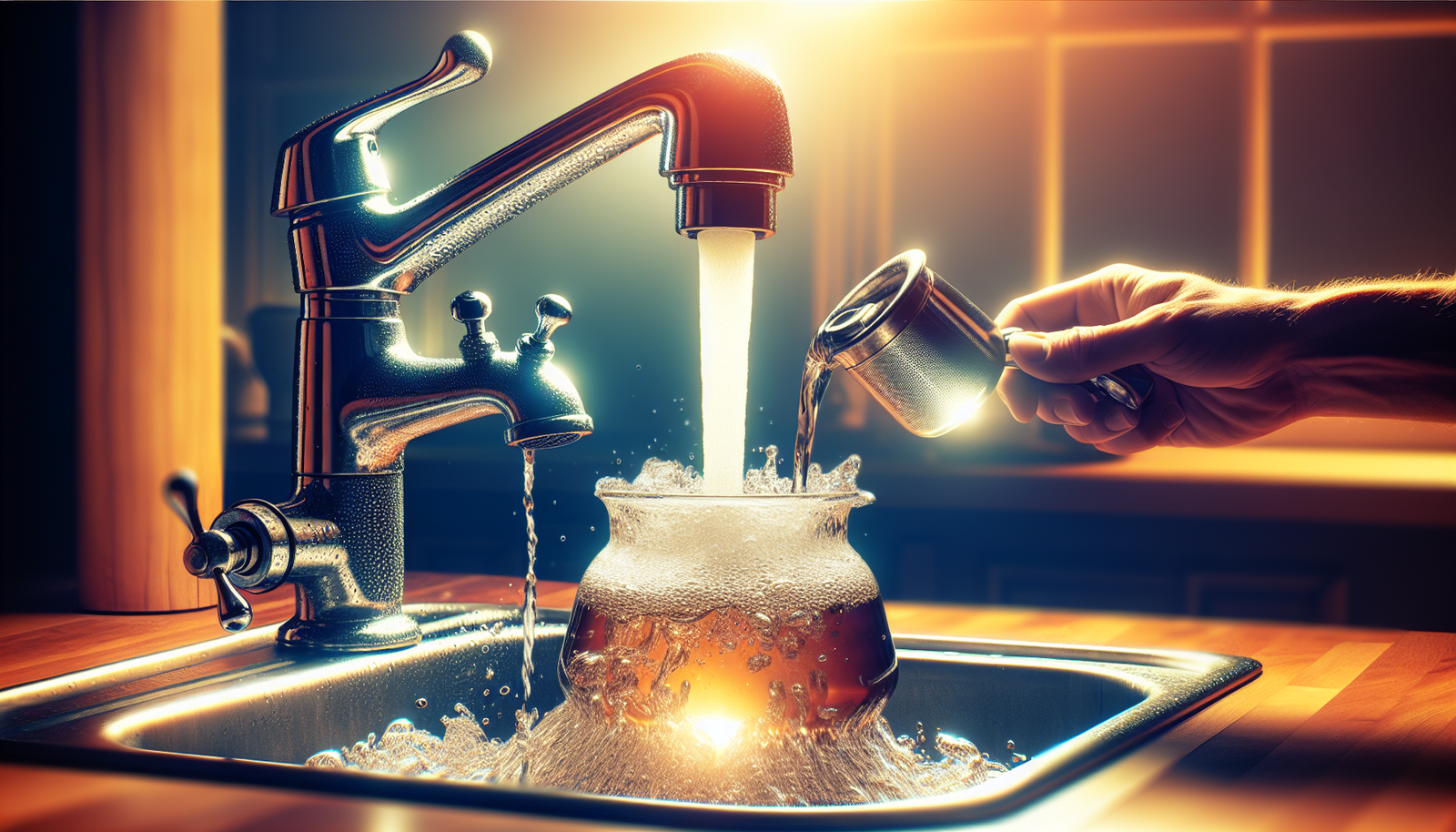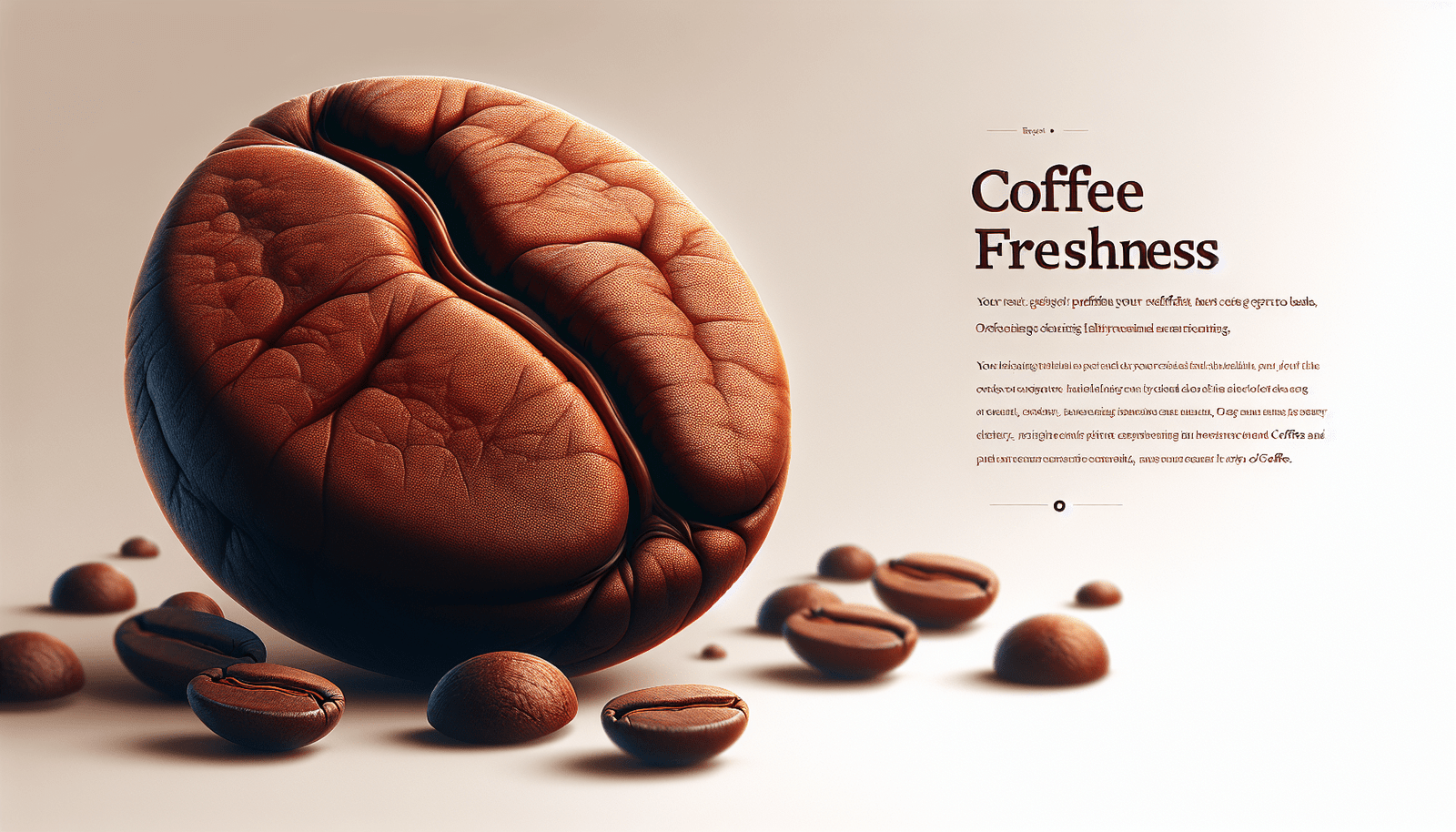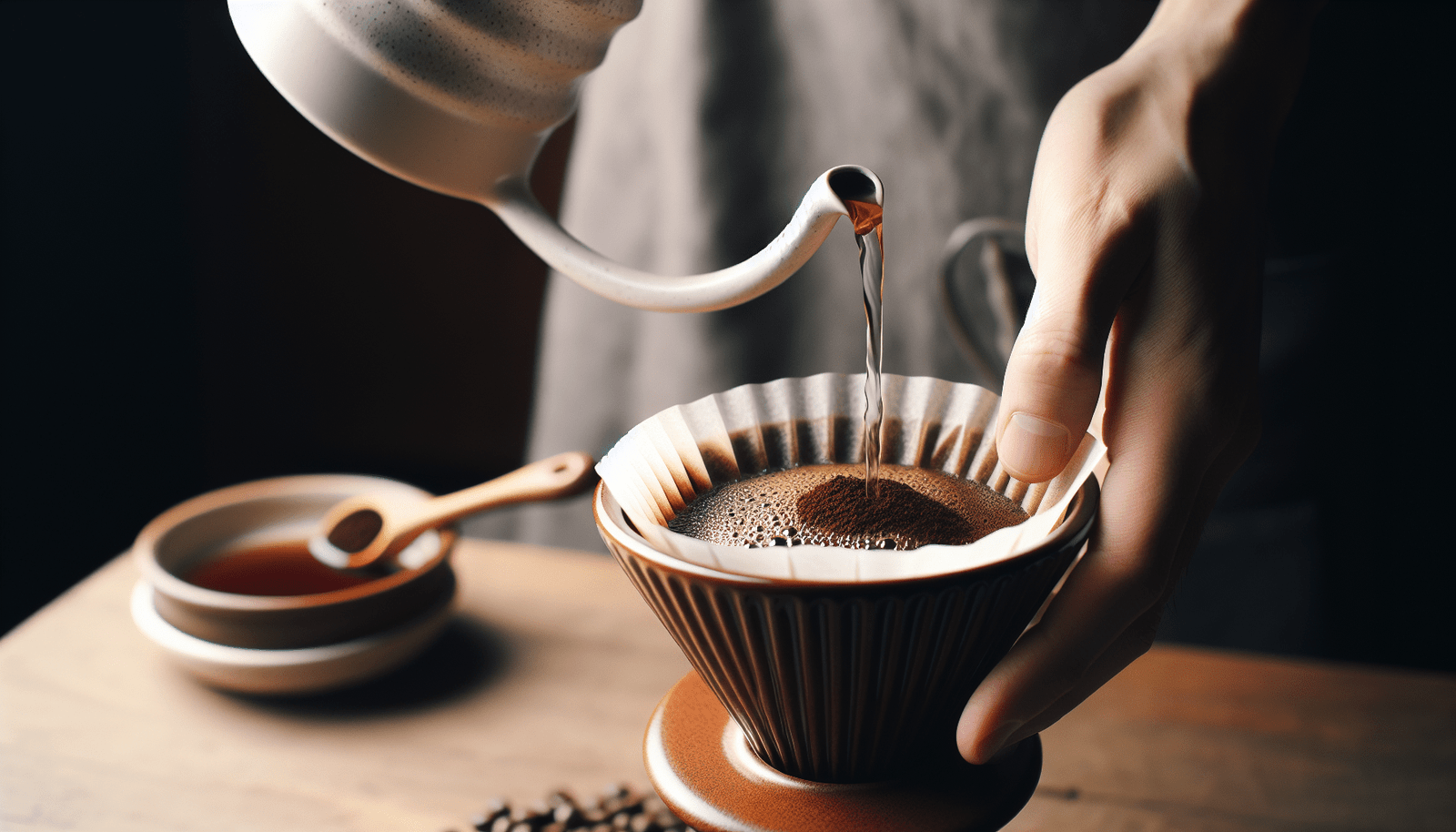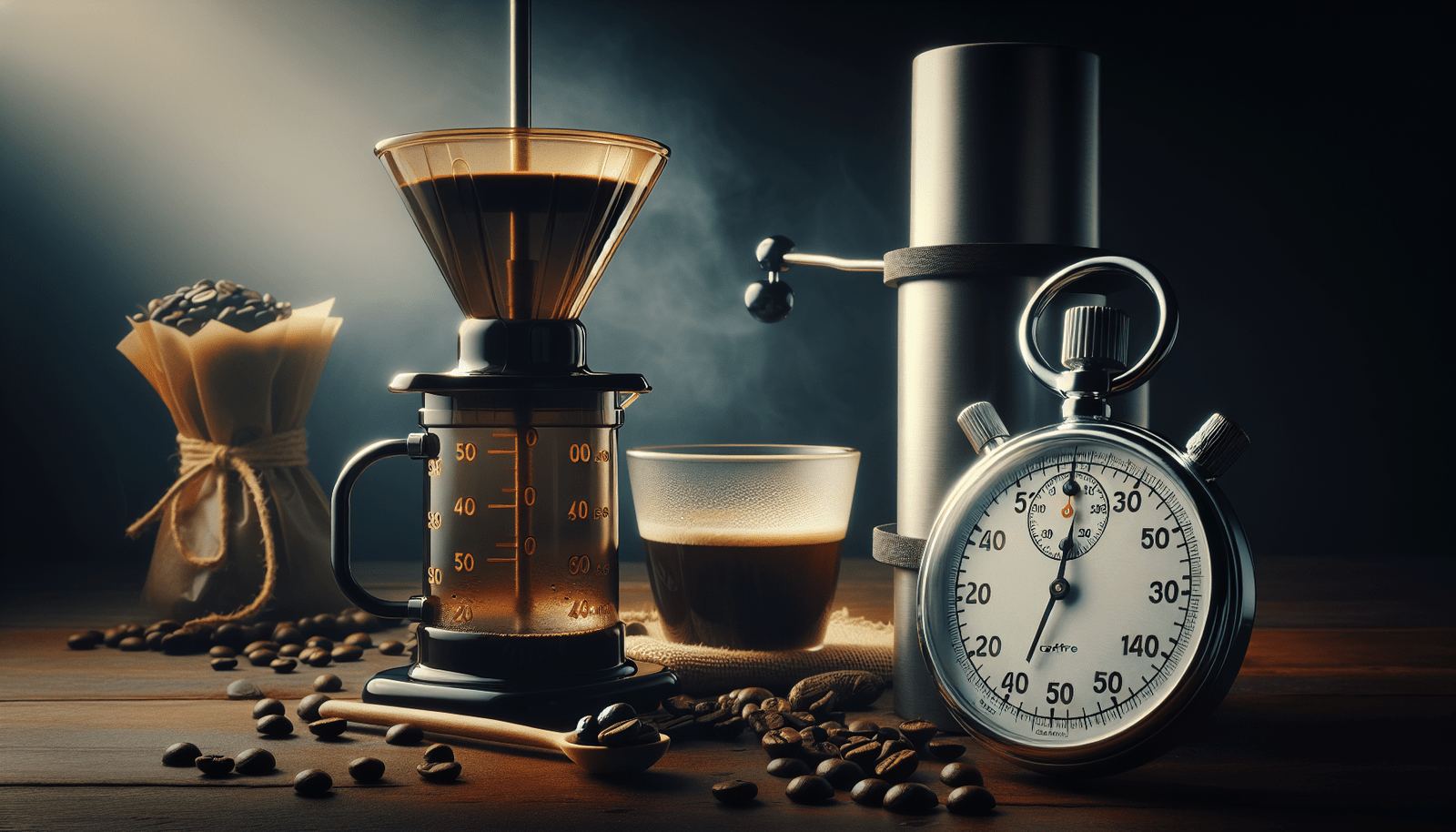So you love starting your day with a delicious cup of coffee, but have you ever wondered if the tap water that flows from your kitchen faucet is good enough to use for brewing the perfect cup? Well, you’re not alone. Many coffee enthusiasts have debated whether tap water can affect the taste and quality of their beloved beverage. In this article, we’ll explore whether tap water is suitable for coffee brewing and provide some helpful tips to ensure you’re sipping on the best cup of joe possible.
The Importance of Water in Coffee Brewing
Coffee is a beloved beverage enjoyed by millions around the world. Whether you prefer a strong espresso or a smooth pour-over, there’s no denying that water plays a crucial role in bringing out the flavors and aromas in your cup of joe. In fact, water makes up more than 98% of your brewed coffee, so it’s essential to understand its significance in the brewing process.
The role of water in coffee extraction
Water is responsible for extracting the flavors and oils from coffee grounds during the brewing process. As hot water comes into contact with the coffee, it dissolves various compounds, including acids, sugars, and aromatic compounds. The extraction process is influenced by factors such as water temperature, contact time, and the quality of water used.
How water affects the taste of coffee
The quality of water used in brewing can greatly impact the taste of your coffee. Each water source contains its own unique combination of minerals and impurities, which can affect the flavor profile. Additionally, the temperature and pH level of the water can also play a role in altering the taste of your brew. Therefore, it’s crucial to pay attention to the characteristics of your water to achieve the desired flavor profile.
Common tap water contaminants
Tap water, despite being a convenient and accessible option for most people, can contain various contaminants that may affect the taste and quality of your coffee. Some common contaminants found in tap water include chlorine, chloramine, heavy metals, and organic compounds. It’s important to be aware of these contaminants and take steps to mitigate their impact on your brewing process.
Factors to Consider When Using Tap Water for Coffee
Water source and quality
The water source used for brewing coffee can greatly determine the composition and quality of the water. Depending on your location, tap water quality can vary significantly. Factors such as the presence of pollutants and the treatment process employed by your local water authority can have a substantial impact on the taste of your coffee. Therefore, it’s crucial to be mindful of your water source and its quality.
Chlorine and water treatment chemicals
Chlorine and other water treatment chemicals are commonly used to disinfect tap water and make it safe for consumption. While these chemicals serve an important purpose, they can impart an unwanted taste in your coffee if present in high concentrations. If your tap water has a strong chlorine odor or taste, it’s advisable to take steps to mitigate its impact on your brew.
Mineral content and hardness
Minerals, such as calcium, magnesium, and bicarbonate, are present in water and can greatly influence the taste and texture of your coffee. Water hardness refers to the concentration of these minerals, and it can vary depending on your location. Hard water, which has a high mineral content, can result in over-extraction and a more bitter taste. Conversely, soft water with a low mineral content may lead to under-extraction and a lack of flavor.
How to Improve Tap Water for Coffee Brewing
Using activated carbon filters
One effective way to improve the quality of your tap water for coffee brewing is by using activated carbon filters. These filters help remove impurities, including chlorine and organic compounds, that may negatively affect the taste of your brew. By reducing these contaminants, you can achieve a cleaner and more balanced cup of coffee.
Boiling and aerating water
Boiling tap water before brewing can help eliminate chlorine, as it evaporates at high temperatures. Additionally, allowing the water to cool and aerate for a short period can further improve its taste. This process helps to release any dissolved gases that may contribute to off-flavors.
Adding mineral supplements
If you have access to filtered or distilled water, you may find that it lacks the necessary minerals for optimal coffee extraction. In such cases, you can experiment with adding mineral supplements, such as magnesium and calcium, to achieve a more balanced water composition. However, it’s important to be cautious and follow recommended guidelines to avoid over-mineralization, which can negatively impact the taste.
Alternative Water Sources for Coffee Brewing
Filtered water
Filtered water can be a great alternative to tap water, as it helps remove impurities while retaining essential minerals. Using a high-quality water filter can provide consistent and clean water for your coffee brewing. However, it’s essential to choose a filter that suits your needs and effectively removes contaminants.
Bottled water
Bottled water is another option for those seeking a reliable water source for their coffee. However, it’s important to consider the mineral content, pH level, and taste of bottled water, as these can vary depending on the brand and source. Opt for bottled water with a neutral pH and a mineral content that complements the flavor profile you desire.
Distilled or reverse osmosis water
Distilled and reverse osmosis (RO) water are highly purified water sources that can be used for coffee brewing. These methods remove nearly all impurities, including minerals, making them a blank canvas for creating your ideal water composition. However, keep in mind that using distilled or RO water exclusively may result in a lack of minerals necessary for optimal extraction.
The Controversy of Using Tap Water for Coffee
Different perspectives on tap water usage
The use of tap water for coffee brewing is a topic of debate among coffee enthusiasts. While some argue that tap water provides a unique and authentic taste to coffee, others believe that the various impurities in tap water can negatively impact the flavor. Ultimately, the decision to use tap water or opt for alternative sources depends on personal preference and the quality of tap water available in your area.
Advantages of using tap water
Using tap water for coffee brewing offers several advantages. It is convenient, readily available, and often more affordable than alternative water sources. Additionally, some coffee aficionados argue that the distinct mineral composition of tap water can enhance the flavor and character of certain coffee beans, leading to a more nuanced and enjoyable brewing experience.
Disadvantages of using tap water
On the other hand, the use of tap water for coffee brewing can present some challenges. The quality of tap water can vary significantly depending on the location, and its composition may contain contaminants that negatively affect taste and aroma. Chlorine, in particular, can leave an unpleasant aftertaste in your brewed coffee. To overcome these disadvantages, additional steps are often necessary to improve the water quality before brewing.
Considering Regional and Local Water Differences
Variations in tap water quality
It’s important to recognize that tap water quality varies not only from country to country but also within regions and even between neighborhoods. Factors such as the source of water, treatment processes, and the presence of underground minerals can all contribute to differences in tap water composition. Understanding the characteristics of your local tap water can help you make informed decisions when brewing coffee.
Adapting brewing methods to water characteristics
Coffee brewing methods can be adjusted to accommodate the characteristics of your tap water. For example, if you have hard water, you may need to adjust your grind size or brewing time to avoid over-extraction. Conversely, if you have soft water, you may need to use a finer grind or increase the brewing time to ensure sufficient extraction. Experimenting with different variables can help you achieve the desired flavor profile with your specific tap water.
Coffee Brewing Methods and Water Selection
Effect of water quality on different brewing methods
The impact of water quality on coffee brewing can vary depending on the brewing method used. For example, in espresso brewing, water with the right mineral content is crucial for balanced extraction and the formation of a rich crema. Pour-over brewing, on the other hand, is more forgiving and allows for more flexibility in water characteristics. Understanding the specific requirements of your preferred brewing method can guide you in selecting the appropriate water source.
Recommendations for specific brewing devices
Different brewing devices may have different preferences when it comes to water quality. For instance, espresso machines often require water with low mineral content to prevent scale buildup. French presses, however, can benefit from water with a higher mineral content to enhance the body and mouthfeel of the coffee. Consult the manufacturer’s guidelines for your brewing device and experiment with different water sources to find the best fit.
Tips for Testing and Experimenting with Tap Water
Tasting and evaluating water for brewing
To assess the quality of your tap water for coffee brewing, consider conducting a taste test. Start by smelling and tasting the water on its own to identify any off-flavors or odors. Then, brew a sample batch of coffee using your tap water and evaluate the taste and aroma. Take note of any undesirable characteristics and compare them to the taste and aroma when using alternative water sources. This process will help you identify any specific issues with your tap water.
Adjusting variables to find ideal water composition
If you find that your tap water could be improved for coffee brewing, don’t be discouraged. There are several variables you can adjust to enhance the water composition. Experiment with different filtration methods, mineral supplements, or even blending different water sources to achieve a more balanced and enjoyable cup of coffee. Keep track of your adjustments and their impact on the flavor to refine your brewing process.
Expert Opinions and Recommendations
Insights from professional baristas and coffee experts
Professional baristas and coffee experts have shared their insights on the importance of water in coffee brewing. Many emphasize the need for clean water with balanced mineral content to achieve the best possible extraction. They suggest experimenting with various water sources and treatments to find the ideal composition for your preferred coffee beans and brewing method. Additionally, they emphasize the importance of understanding the characteristics of your tap water to make informed decisions.
Choosing the best water for your brewing preferences
Ultimately, the best water for your coffee brewing will depend on your personal preferences and the characteristics of your tap water. Some people may enjoy the unique flavors that tap water imparts on their brew, while others may prefer the cleaner taste achieved with alternative water sources. It’s essential to experiment and test various options to find what works best for you. Remember that the journey in coffee brewing is all about exploring and discovering what brings you the most enjoyment.
Conclusion
In conclusion, water plays a vital role in the coffee brewing process and can greatly impact the taste and quality of your cup of coffee. Tap water, while convenient, may contain contaminants that can alter the flavor profile. By understanding the characteristics of your tap water and taking steps to improve its quality, you can enhance your brewing experience. Whether you choose to use tap water, filtered water, or any other alternative source, the key is to experiment, adapt, and find the water composition that best suits your coffee preferences. Remember, brewing coffee is an art form, and the water you use is one of the essential tools in your arsenal.




